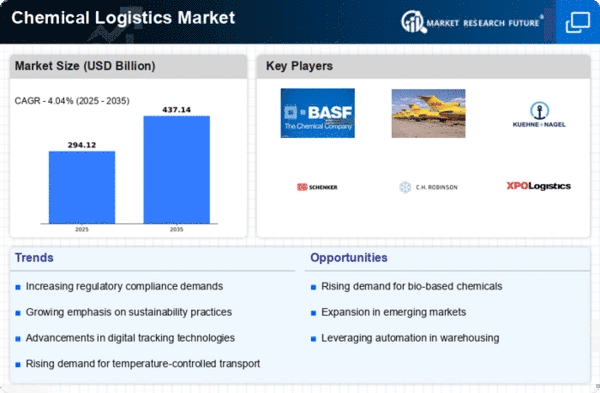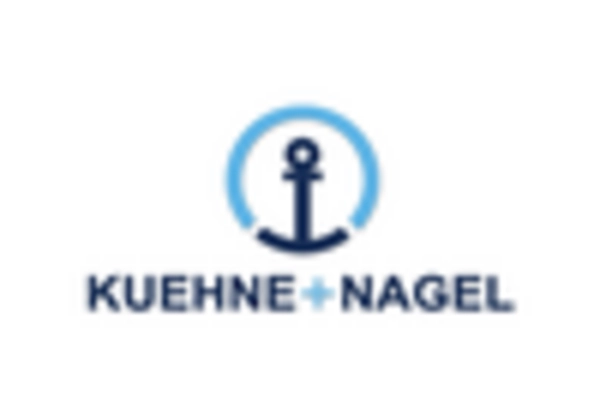Market Trends
Key Emerging Trends in the Chemical Logistics Market
The market for Chemical Logistics is experiencing notable trends that reflect the unique challenges and evolving dynamics within the chemical industry. One significant trend is the increasing emphasis on safety and compliance. As chemical logistics involve the transportation and handling of hazardous materials, there is a growing focus on adhering to stringent safety regulations and compliance standards. Logistic providers are investing in specialized training, technology, and infrastructure to ensure the safe and secure transportation of chemicals, minimizing risks and meeting regulatory requirements.
Digitalization is playing a crucial role in reshaping the Chemical Logistics market. The adoption of advanced technologies such as IoT (Internet of Things), RFID (Radio-Frequency Identification), and data analytics is enhancing visibility and traceability throughout the supply chain. Real-time monitoring of shipments, temperature-sensitive cargo, and other critical parameters ensures the integrity of chemical products during transportation. The integration of digital platforms is also streamlining communication and collaboration among stakeholders, fostering greater transparency and efficiency in chemical logistics operations.
Sustainability is a key trend influencing the Chemical Logistics market. With a growing awareness of environmental concerns, stakeholders in the chemical industry are seeking logistics solutions that prioritize eco-friendly practices. This includes the use of alternative fuels for transportation, implementing energy-efficient warehouse operations, and exploring packaging materials with reduced environmental impact. Sustainable chemical logistics not only align with corporate social responsibility goals but also respond to the increasing demand from customers and regulators for environmentally responsible supply chain practices.
Customization and flexibility in logistics solutions are gaining prominence in the Chemical Logistics market. The chemical industry encompasses a diverse range of products with varying characteristics and handling requirements. Logistic providers are adapting by offering tailored solutions to meet the specific needs of chemical manufacturers and distributors. This includes specialized packaging, temperature-controlled transportation, and the development of dedicated supply chain networks to ensure the safe and efficient movement of different types of chemicals.
Collaboration and partnerships are becoming integral to addressing the complexities of Chemical Logistics. The chemical supply chain often involves multiple stakeholders, including manufacturers, distributors, carriers, and regulatory bodies. Collaborative efforts between these entities are essential for ensuring seamless operations and compliance with regulatory standards. Partnerships with logistics service providers that specialize in chemical handling contribute to a more integrated and efficient supply chain, reducing risks and improving overall logistics performance.
Globalization is impacting the Chemical Logistics market, with an increasing volume of chemical products being traded internationally. This trend necessitates robust global logistics networks capable of handling cross-border transportation, customs compliance, and international regulations. Logistic providers are expanding their capabilities to offer end-to-end logistics solutions for chemical shipments, addressing the complexities of international trade and supporting the globalization of the chemical industry.
Innovations in packaging materials and designs are influencing the Chemical Logistics market. The choice of packaging plays a crucial role in ensuring the safety and integrity of chemical products during transportation. Innovations such as sustainable and secure packaging solutions, including bulk containers and intermediate bulk containers (IBCs), contribute to minimizing the environmental impact and reducing the risk of product contamination or leakage during transit.
Risk management is a critical consideration in Chemical Logistics. Given the hazardous nature of many chemical products, logistics providers are implementing robust risk management strategies. This includes contingency planning, emergency response protocols, and insurance coverage to mitigate potential risks associated with spills, accidents, or unforeseen events. The focus on risk management not only enhances safety but also contributes to maintaining the reliability and resilience of chemical logistics operations.


















Leave a Comment